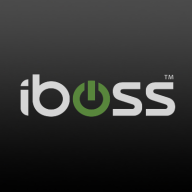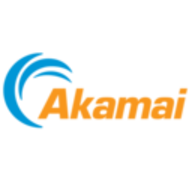


Akamai Enterprise Application Access and Check Point Harmony SASE compete in secure application access and network security. Akamai has the upper hand in integration and customer support, while Check Point Harmony SASE is favored for feature satisfaction and flexibility.
Features: Akamai is known for its robust security protocols, comprehensive feature set, and seamless integration capabilities. Check Point Harmony SASE is recognized for its flexibility, ease of use, and innovative features. Despite a strong security focus, Akamai's comprehensive scope sometimes overshadows Check Point's adaptability to diverse needs.
Room for Improvement: Akamai users suggest enhancing user experience, offering more customization options, and refining monitoring tools. Check Point Harmony SASE users point out the need for better reporting features, expanded integration options, and more depth in feature adaptability. Both solutions are viewed as needing improvements in monitoring capabilities, with Check Point requiring more adjustments in adaptability.
Ease of Deployment and Customer Service: Akamai receives positive feedback for straightforward deployment and effective customer service support. Check Point Harmony SASE excels in easy initial setup but faces challenges with support response times. Akamai offers a smoother deployment process, while Check Point Harmony SASE users value self-service options despite occasional difficulties with support.
Pricing and ROI: Akamai is seen as offering a better ROI due to reliable support and effective deployment, justifying its higher initial setup costs. Check Point Harmony SASE provides competitive pricing with a good balance between cost and feature offerings. Despite higher costs, Akamai users find the ROI aligns with service quality and reliability, whereas Check Point offers satisfaction in cost-feature balance.
| Product | Market Share (%) |
|---|---|
| Check Point Harmony SASE (formerly Perimeter 81) | 3.9% |
| iboss | 2.4% |
| Akamai Enterprise Application Access | 1.9% |
| Other | 91.8% |

| Company Size | Count |
|---|---|
| Small Business | 6 |
| Midsize Enterprise | 6 |
| Large Enterprise | 5 |
| Company Size | Count |
|---|---|
| Small Business | 52 |
| Midsize Enterprise | 19 |
| Large Enterprise | 14 |
Iboss offers a comprehensive cloud-based security platform valued for its scalability and autonomous features, ensuring robust security with easy deployment and management capabilities.
Renowned for its robust security architecture, Iboss integrates seamlessly within diverse networks, delivering efficient granular filtering and advanced content categorization. Its single pane of glass console provides ease of management, allowing rapid scalability suitable for rapidly deploying environments. Operates in BYOD setups due to inline filtering without device installation. Integration with cloud-based applications enhances user control, and features like SASE, SSL inspection, and ChatGPT risk protection stand as highlights. Despite its strengths, users have pointed out areas for enhancement like direct navigation in reports, SSL decryption, and better cloud integration while having room to improve data loss prevention.
What are the most important features of Iboss?The usage of Iboss spans educational institutions, specifically K-12, to enforce internet policies, protect data, and support remote work environments. It provides web filtering and security frameworks to ensure safe browsing. Its platform-as-a-service model offers flexibility for both cloud-based and on-premises requirements, integrating seamlessly to deliver enhanced security features suitable for various deployment needs including zero trust, CASB, and network security for work-from-home setups.
Akamai Enterprise Application Access is a cloud-based solution that provides secure access to enterprise applications and data from any device, anywhere. It eliminates the need for traditional VPNs and allows organizations to easily manage access to applications and data for employees, partners, and customers. With its zero-trust approach, it ensures that only authorized users can access sensitive information, reducing the risk of data breaches.
Check Point Harmony SASE, formerly Perimeter 81, offers robust security features like split tunneling, MFA, and Zero Trust Network Access focused on secure remote access and optimized connectivity for remote teams.
Check Point Harmony SASE delivers advanced security through a user-friendly interface, efficient VPN connections, and a centralized management console. It enhances security with real-time threat intelligence from ThreatCloud and traffic management via built-in optimization. Firewall as a Service and Secure Web Gateway safeguard against unauthorized access and phishing. While users seek enhanced networking customizations and better integration with identity providers, there's an emphasis on improving reporting, real-time analytics, and policy management. Requests also include a Chrome extension, traffic balancing, and simplified configuration to address some resource-intensive aspects.
What are the key features of Check Point Harmony SASE?
How can organizations benefit from using Check Point Harmony SASE?
Check Point Harmony SASE is used across industries for secure remote access and connectivity, protecting sensitive data, and managing access to corporate resources. It is ideal for those with hybrid cloud models and requires comprehensive security measures combined with existing IT infrastructures to meet specific industry demands.
We monitor all Secure Access Service Edge (SASE) reviews to prevent fraudulent reviews and keep review quality high. We do not post reviews by company employees or direct competitors. We validate each review for authenticity via cross-reference with LinkedIn, and personal follow-up with the reviewer when necessary.